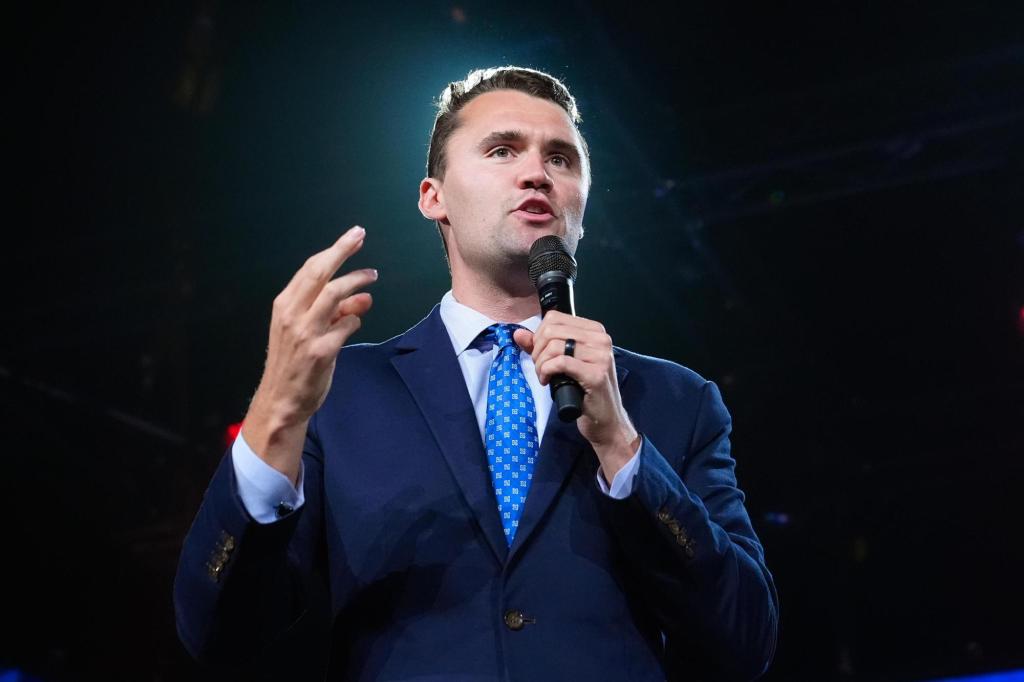
Charlie’s death is more than a personal tragedy — it is a sobering reminder of how political violence is fraying the bonds of our nation. He often said, “When people stop talking, that’s when you get violence, that is when civil war happens.”
If you recognized the name Charlie Kirk, you probably had an opinion about him. At 18, he founded conservative organization Turning Point USA and quickly became one of the most important activists of our generation, making him a close ally to President Donald Trump. But at 31, his life was cut short by a gunman who stole a father and husband from his family.
Charlie and I were not close. But we talked at length once when my friend and employee Hayden Williams was attacked at UC Berkeley for exercising his free speech rights. His first question — “How is Hayden doing?” — showed he cared about others first.
I also remember the many Turning Point students I helped through my conservative activism. I helped start the very first Turning Point chapters in Colorado in 2015, and then helped Turning Point Staff build out their network in California’s UC and CSU system as well as various community colleges.
One of my favorite Turning Point USA events was at Long Beach City College in 2018, where I helped host a discussion on the 2nd Amendment that drew students from across campus, including many who disagreed with the speaker. The debate remained respectful throughout, and the student paper later ran a favorable piece on the chapter.
I also had the opportunity to speak in front of dozens of Turning Point chapters and conferences nationwide to share my Antifa story. I was always delighted that the room included left-leaning students challenging my views on Antifa, civil discourse, and free speech.
These were exactly the kinds of discussions Charlie encouraged on campus.
Of course, not everyone agreed with Charlie. Students, faculty members, journalists and even some politicians openly criticized him and Turning Point USA. Some called his methods confrontational, or accused him of polarizing campuses. And to a great extent that’s the point — Charlie thrived in debate. He saw disagreement not as a threat, but as the lifeblood of free speech. He welcomed challenge, because the exchange of ideas, even contentious ones, is how young people learn and grow. That’s the kind of discourse our nation desperately needs so we do not fall prey to the clutches of political violence.
Charlie Kirk’s influence on young conservatives was bigger than just a few events. He transformed and galvanized a generation to champion free speech and conservative values, even in often hostile environments. I know dozens of people who owe their careers in politics to Charlie, and at least half a dozen marriages and plenty of babies that were born out of the movement he created.
His signature “Prove Me Wrong” event, like the one he had at Utah Valley University, allowed him to answer question after question from students on nearly every topic imaginable — transgender rights, guns, religious freedom — and they were so popular that South Park even satirized them. It was never about avoiding tough questions, it was about listening, learning, and growing.
Ultimately, what Charlie taught us is that disagreement is not division. It is an opportunity to connect, to understand, and to preserve the civic fabric of our country. Our nation will survive and thrive not by silencing each other, but by continuing to listen, challenge, and—most importantly—talking with our fellow Americans in meaningful conversation. So for the love of God — let’s keep talking.
Gabriel Nadales is the national director at the Our America Foundation and a graduate of Citrus College.



